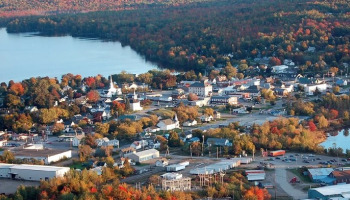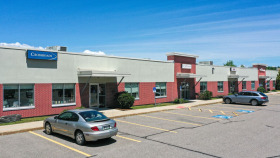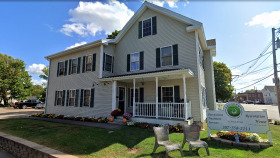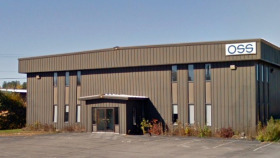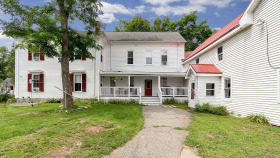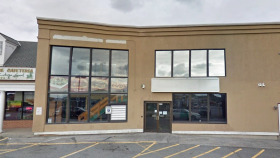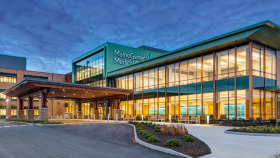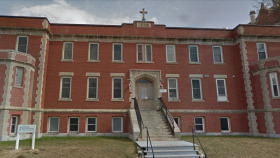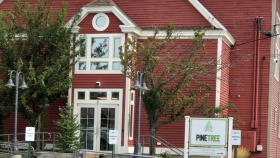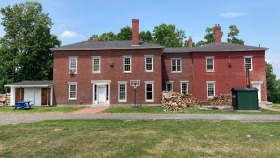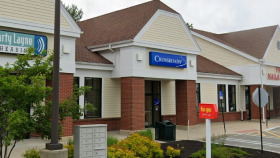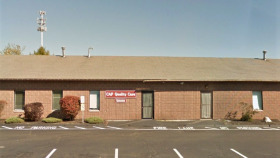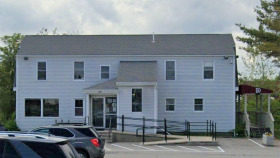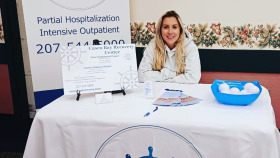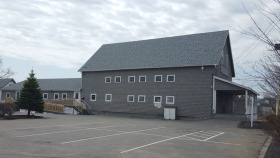Expert Insights
Maine experienced a significant decline in drug overdose deaths in 2023, nearly the greatest decrease of any state that year. While this is a promising turn, the state has long faced its share of addiction related challenges. The drug overdose death rate in Maine rose dramatically from 11.8 per 100,000 in 2011 to 47.1 in 2021. This was far higher than the overall U.S. rate in 2021 of 32.4.
A series of initiatives led to a turnaround between December 2022 and December 2023. During this time, the state experienced a 16.1% decline in overdose deaths. State officials attribute this positive change to several strategies including expanding the distribution of naloxone to combat overdoses, strengthening prevention tactics and increasing the number of treatment beds available at rehab centers across the state.
I believe that these programs may provide a foundation for programs in other states. Yet, the momentum in Maine is contingent upon individuals seeking care as soon as they know they need help and finding accessible treatment options in their local area.
~ Gayle Morris, BSN, MSN
How Much Does Drug Rehab Cost in Maine?
Maine is ranked 9th nationwide in terms of addiction treatment affordability, with an average cost of drug and alcohol rehab of $56,108 (without insurance).
- Medical detox is the most expensive, with an average cost of $138,327
- Long-term inpatient drug rehab in Maine costs an average of $49,512
- Outpatient addiction treatment in Maine costs an average of $8,227
- Outpatient methadone treatment is the most affordable, with an average cost of $7,310
How to Pay for Drug Rehab in Maine
As of 2024, there were over 220 drug rehab facilities across the state of Maine. These facilities accept several payment methods. Of those treatment facilities, the following numbers reflect how many accept their respective payment methods:
There are a lot of ways to cover the cost of rehab in Maine. Here are a few for you to consider.
Private Pay & Insurance
Not many people have the cash to pay for rehab sitting in the bank, but if you do (or can borrow it from a bank or friends) you can pay for rehab yourself, which is known as private pay. Another popular way to pay for addiction treatment is using health insurance. Be sure you understand which treatment centers are within your provider network so you can maximize your insurance coverage.
The primary health insurance companies in Maine are:
- Anthem Blue Cross Blue Shield
- Harvard Pilgrim Healthcare
- Community Health Options
- Tarp Health
- United Healthcare
Medicaid
MaineCare is available for those who have lower income or otherwise qualify based on state guidelines. This coverage helps you get medical care, emergency services, addiction treatment, prescription drugs and other services. With Medicaid, you may pay nothing for treatment, or you might have a low fee. It’s important to choose a treatment clinic that accepts your MaineCare plan to ensure you get the help you need.
Medicare
Original Medicare is a federal program you might qualify for if you’re 65 or older, permanently disabled, or have other specific health conditions. You can also decide to get a Medicare Advantage plan from a private insurance company instead. This replaces Original Medicare and may have additional coverage benefits. However, you’ll also have to get care within the plan’s network, so be sure to talk to your Medicare insurance provider before you start addiction treatment.
Military Insurance
We appreciate the service of those who put their lives on the line for our country. If you’re in the military, you’re likely to have experienced very difficult and traumatic things. This can result in PTSD, substance use, and other mental health concerns. The good news is that TRICARE and VA insurance both cover substance use treatment and mental health. You can visit a nearby VA or military health clinic to get started on the path to freedom.
Tribal Funding & Programs
There are some tribal specific treatment programs in Maine. For example, if you are from a tribe covered by Wabanaki Public Health, you can access addiction treatment and behavioral health care for adults and children through them, including recovery homes, peer support and medication assisted treatment. You may also qualify for MaineCare and be able to enroll at an addiction treatment center that accepts that coverage.
Other Low Cost Options
Individual treatment centers may have additional options that make treatment affordable. For example, some offer scholarships or financial aid. Others have payment arrangements available or will charge you based on a sliding scale that takes your financial situation into account. Because these payment arrangements vary from center to center, be sure to contact the rehab to learn more before you enroll.
Free Rehabs in Maine
Getting free rehab treatment in Maine can seem challenging, but there are multiple addiction treatment centers where you can get help for free. One of the best ways is to sign up for MaineCare, the state’s Medicaid program. With this coverage you can go to rehabs that accept MaineCare and pay little or nothing for treatment.
You can also find rehab programs that are free in Maine by looking for programs that let you work instead of paying a fee. Not only are these programs free, but they also help you develop a work history and the skills you need to get a job after treatment. Having steady work makes housing and long term recovery much more manageable.
Free Addiction Treatment Resources in Maine
Healthy Acadia
For those living in Hancock and Washington counties, Healthy Acadia can help connect you to community health programs for all ages. They can also connect you to addiction treatment and places to get recovery support, social services, naloxone (Narcan) kits and fentanyl test strips. You can contact them directly on their website or call 211 for more information on community resources.
Peer Support Warmline
If you’re looking for peer support and aren’t sure where to start, the peer support warmline can help. Just call 1-866-771-WARM (9276) at any time. The line is available 24 hours a day 7 days a week. You’ll talk to a specialist who is trained to encourage you in recovery, help you connect with the community, and move you toward wellness. Each specialist also has lived experience with mental health and/or substance use, so you know they understand where you’re coming from.
Maine Veterans Project
To support those who have served this nation, the Maine Veterans Project has a variety of programs and services. There are indoor and outdoor recreation activities to help you connect with others who understand your experience. They offer heating fuel help to disabled veterans in need and a vehicle donation program. There is also a ‘Hero of the Month’ program to help with essentials like utility bills, food, and clothing.
Mid Coast Recovery Coalition
The Mid Coast Recovery Coalition has two recovery homes, one for men and one for women. The men’s home is in Rockland and the women’s is in Camden. There is also a Coastal Recovery Community Center in Rockland that makes it easy for you to find support, fellowship, and recovery coaching. You can also get help connecting with social services and other resources at the Center.
Maine Recovery Hub
There are 19 recovery community centers in Maine, and the Maine Recovery Hub gives you an easy way to find the one nearest you. These centers provide peer support and recovery focused social activities. There are also outreach programs, and you can get help connecting to social services like health and financial assistance. A recovery community center is great for finding recovery meetings in your area.
University of Maine Student Wellness Resource Center
University life can be challenging if you’re navigating mental health concerns or substance use. Fortunately the Student Wellness Resource Center at the University of Maine can help. They offer educational sessions and a stress-free “Mind Spa” space with snacks and activities. They can also connect you to harm reduction supplies such as naloxone (Narcan), fentanyl test strips, and other resources.
Drug Laws in Maine
Marijuana Laws in Maine
The personal use of marijuana is legal in Maine for those 21 and older as long as you buy from a licensed cannabis store. You can have up to 2.5 ounces total of cannabis, cannabis products, and cannabis concentrate. Medical marijuana is also legal, although it cannot be dispensed from the same store as personal use cannabis. Using marijuana in public and driving under the influence are both illegal.
Operating Under the Influence (OUI) Laws
Operating a vehicle under the influence of alcohol or other illicit drugs is illegal in Maine. The blood alcohol content (BAC) limit for those 21 and over is 0.08%, with additional penalties for a BAC of 0.15% or more. The under 21 limit is 0.00% — absolutely none. The penalties for a first offense with no additional factors include a license suspension of 150 days and a fine of at least $500, along with up to a year in jail. A second offense within 10 years is a license suspension of 3 years, at least seven days in jail and a fine of at least $700. Refusal of BAC testing results in an immediate suspension of your license for 275 days.
Possession of Illegal Substances in Maine
Maine has created a drug schedule of W-Z where the highest charge is W and the lowest is Z. For example, possession of cocaine is a W, while having more than the allowed amount of marijuana is a Z. Possession of cocaine for a first offense without prior drug convictions can result in up to a year in jail and a fine of up to $2,000. If you have a certain amount of a substance your charge will be furnishing the drug, rather than possession, which raises the penalty. More than 7 grams of cocaine is considered furnishing, which can result in up to five years in prison and a fine up to $5,000.
Drug Testing Laws in Maine
Any employer that wants to have a drug testing policy has to get it approved by the Maine Department of Labor unless they have employees subject to federally mandated testing. Some of the rules for employers are that they must have an employee assistance program and a written drug testing policy that defines what constitutes a positive result and includes an appeal process. They must use a qualified lab, can only test for the substances they specify, and the employer must pay the full cost. The employer must also set cutoffs for a positive test at certain levels as defined in the law.






